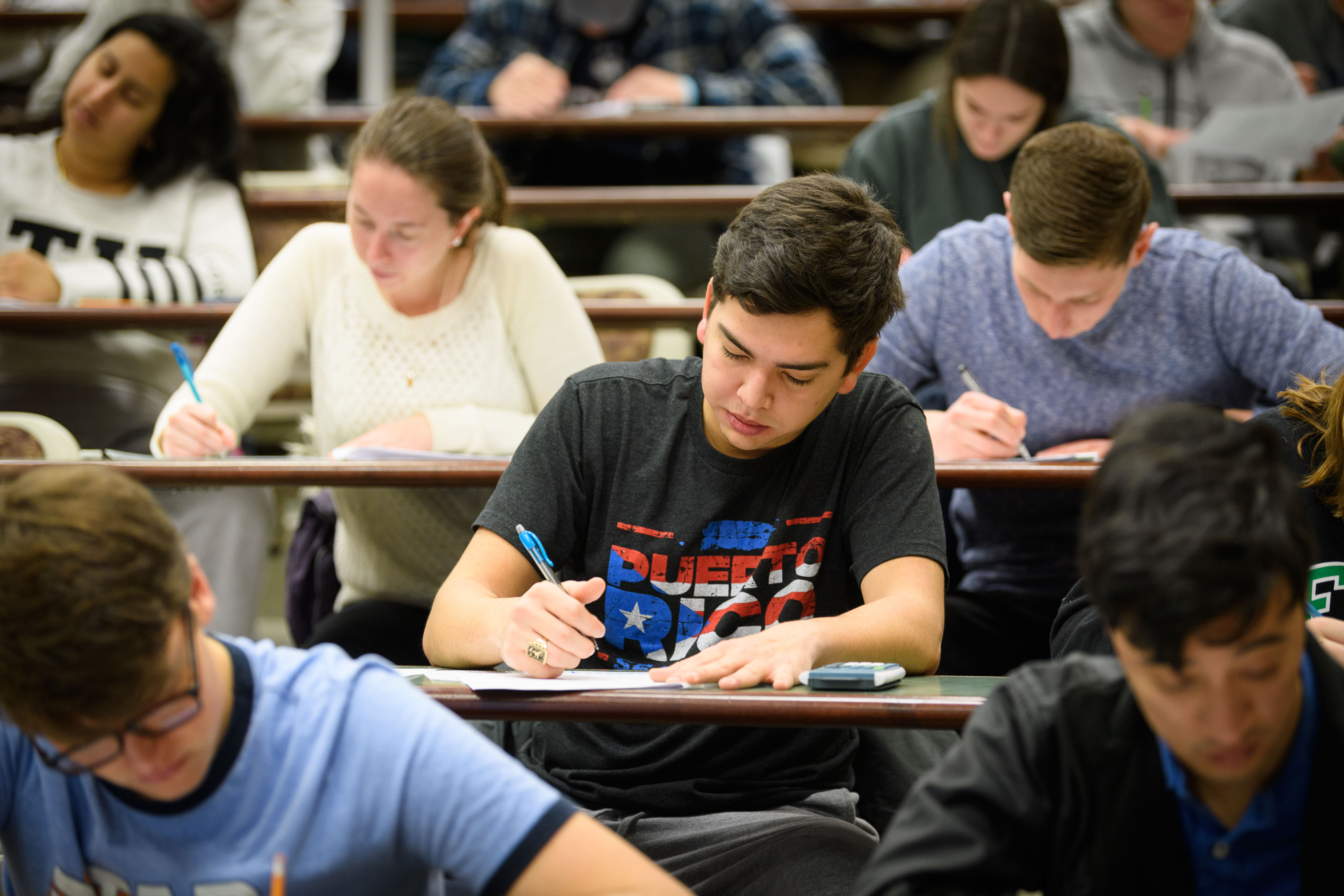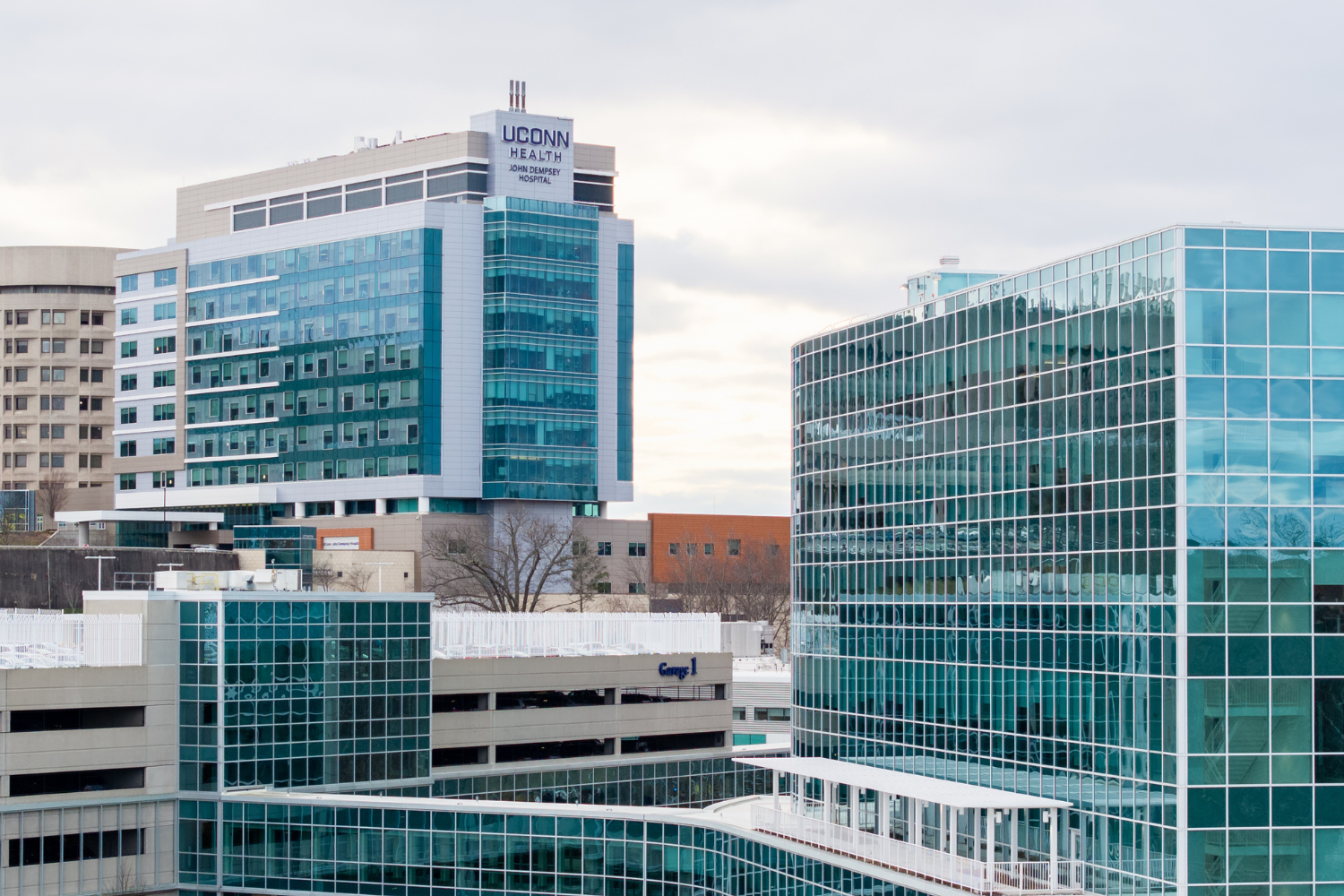When he had concerns about his family in Puerto Rico this fall, sophomore Daniel Cintron learned he could rely on the UConn family.
A native of San Juan, Puerto Rico, the chemistry major feared for his family’s safety when the island was devastated by Hurricane Maria in late September. Hurricane Irma had also hit Puerto Rico earlier in the month.
“I was able to text with my mom, Carmen, as the storm was going on, but it took me a week to talk to my dad, Pedro,” said Cintron. “I am very close to my grandfather too, and I didn’t talk to him for almost a month. “It was very stressful for me. I had exams the week after it hit, but I couldn’t take my eyes off the news. The cell towers blew out back home, and so I wasn’t able to reach anyone after a while.”
UConn really helped me out, and it touched my heart. — Daniel Cintron
Cintron was one of a number of students from Puerto Rico, Texas, Florida, and the Virgin Islands that the University reached out to as all these areas were affected by the storms. This past semester, the University also offered assistance to students from the Las Vegas area after the mass shooting that took place there.
“The students needed to know that we were here for them,” said Maureen Armstrong, associate dean of students. “We sent out emails, went to residence halls, and also reached out to graduate students living in the affected areas that were taking online classes.”
The needs of the students varied by individual. “Some just needed to talk,” Armstrong said. “Social media did not help, as many of them could see the destruction but not get in touch with their families.”
The Office of Counseling and Mental Health Services provided drop-in support for these students. “It might not necessarily be clinical or therapy help that they needed, just someone to listen to their worries,” said Armstrong.
Some students also had financial concerns as a result of the storm. Cintron, for example, feared he would not be able to meet his monthly tuition payments. Others were looking to ship packages back home so family members could have medicine and fresh toiletries.
“My father lost a lot of his work hours and my mother had such great property damage, I was not sure what I would do,” said Cintron.
His mother is still without power and water. Her apartment was completely flooded as a result of the storm – and she lives on the sixth floor of an apartment building.
Through the assistance of Armstrong and her team, Cintron was directed to the Students First Fund, which was created by the Division of Student Affairs and is managed by the UConn Foundation. Students who have experienced an unanticipated hardship may receive a gift through the fund to help ease whatever burden they might have.
Cintron was one of 11 UConn students who were affected by the storms and received Foundation funds. Another 34 received University need-based aid.
“It’s standard protocol for us to review students from areas affected by different types of hardships,” said Wayne Locust, vice president for enrollment planning and management. “We rally around these students and determine what their needs may be.”
Students from areas affected by a disaster don’t have to contact the financial aid office directly.
“We don’t want to put more of a burden on them than they already have,” said Locust. “We follow up with them. Each year we set aside emergency funds as part of our financial aid strategy. We don’t have a crystal ball, but there are always going to be hardships.”
In addition to this help provided to students, UConn’s El Instituto: Institute of Latina/o, Caribbean, and Latin American Studies has started a series of talks on the crisis in Puerto Rico, which will run through the spring semester. The series began in November with a presentation called “The Politics of Disaster Relief: Austerity and Human Rights in Puerto Rico Post-Maria” by human rights lawyer, community activist, and Universidad del Sagrado Corazón professor (Santurce, Puerto Rico) Ariadna Godreau Aubert.
UConn associate professor of political science Charles Venator-Santiago is heading up a survey of displaced people from Puerto Rico, who are currently living in Connecticut, a project that is funded by the Hartford Foundation for Public Giving.
“UConn really helped me out, and it touched my heart,” said Cintron, who is flying back to Puerto Rico to spend the break with his family. “It really says a lot about UConn and how much it cares about its students. I have friends that go to other schools and they did not get the kind of assistance and care I did here at UConn. I am really happy here and want to be a proud graduate.”



